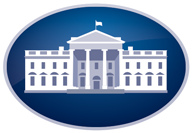

The President’s Weekly Address post is also an Open News Thread. Feel free to share other news stories in the comments.
From the White House – Weekly Address
In this week’s address, on “National Prescription Drug Take-Back Day,” the President spoke about the importance of preventing and treating substance use disorders. Overdoses from prescription pain medications kill thousands of Americans every year, and more often than not, those drugs come from the family medicine cabinet. In addition, many heroin users started out by misusing prescription drugs. That’s why it’s important to take advantage of the DEA’s National Prescription Drug Take-Back Day and safely, conveniently, and responsibly dispose of expired and unwanted prescription drugs at collection sites throughout your community—no questions asked. Drug disposal programs are part of the President’s 2011 Prescription Drug Abuse Prevention Plan, which also included increasing education for prescribers, expanding Prescription Drug Monitoring Programs, and pursuing Smart on Crime enforcement. In his address, the President called on us all to continue to work to reduce substance use disorders through evidence-based treatment, prevention, and recovery.
Transcript: Weekly Address: Dispose of Your Expired and Unwanted Prescription Drugs
Remarks of President Barack Obama
Weekly Address
The White House
September 26, 2015Hi, everybody. Today, September 26th, is “National Prescription Drug Take-Back Day.” It’s a day where you can safely, conveniently, and responsibly dispose of expired and unwanted prescription drugs at collection sites in your community.
Here’s why this matters. More Americans now die every year from drug overdoses than they do in car crashes. And most of those deaths aren’t due to drugs like cocaine or heroin – but rather prescription drugs. In 2013 alone, overdoses from prescription pain medications killed more than 16,000 Americans. And most young people who begin misusing prescription drugs don’t buy them in some dark alley – they get them from the medicine cabinet.
If that’s not a good enough reason to participate in “National Prescription Drug Take-Back Day,” here’s another. Many prescription pain medications belong to the same class of drugs as heroin. In fact, four in five heroin users started out by misusing prescription drugs. And over the course of just one year, between 2013 and 2014, we saw a 33% increase in the number of heroin users.
All of this takes a terrible toll on too many families, in too many communities, all across the country – big and small, urban and rural. It strains law enforcement and treatment programs. It costs all of us – in so many different ways.
That’s why, four years ago, my Administration unveiled a Prescription Drug Abuse Prevention Plan. We’ve been partnering with communities to combat overdoses, and we’re seeing some promising results. That’s why the budget I put forward this year would build on those efforts. It would make critical investments in things like drug monitoring programs, equipping more first responders to save more lives, and expanding medication-assisted treatment programs – including in our prisons.
In fact, getting smarter about how we address substance use disorders is a vital part of reforming our criminal justice system. Rather than keep spending billions of taxpayer dollars on needlessly long prison sentences for nonviolent drug offenders, we could save money and get better outcomes by getting treatment to those who need it. And we could use some of the savings to make sure the brave men and women of law enforcement have the resources they need to go after drug kingpins and violent gangs, disrupt the flow of drugs into our country, and address the real threats to our communities.
With no other disease do we expect people to wait until they’re a danger to themselves or others to self-diagnose and seek treatment. So we should approach abuse as an opportunity to intervene, not incarcerate. And we all have a role to play here. Parents, we have to understand how important it is to talk to our kids, and to safely store medications in the house. The medical community has to be engaged, too – because better prescribing practices will make a difference.
And as a country, we have to keep working to reduce drug use through evidence-based treatment, prevention, and recovery. Because research shows it works. Courageous Americans show it works, every day. That’s why the man I named to head the office of National Drug Control Policy – Michael Botticelli – is a man in long-term recovery himself. He talks about it openly and honestly, precisely to strike down the shame and stigma that too often keep people from seeking care before it’s too late.
This is something I’ll be talking about more in the weeks to come, in communities across the country. Because it’s a challenge we can solve if we work together.
Thanks, and have a great weekend
Bolding added.
~

Heroin use reaching epidemic proportions:
Maybe if it is not just a problem for “those people” it will finally get the attention it deserves from those who hold the purse strings in Congress.
President Obama’s and Chinese President Xi Jinping on Friday:
Transcript: Remarks by President Obama and President Xi of the People’s Republic of China in Joint Press Conference
FACT SHEET: The United States and China Issue Joint Presidential Statement on Climate Change with New Domestic Policy Commitments and a Common Vision for an Ambitious Global Climate Agreement in Paris
Reactions: China announces plans to launch cap-and-trade system